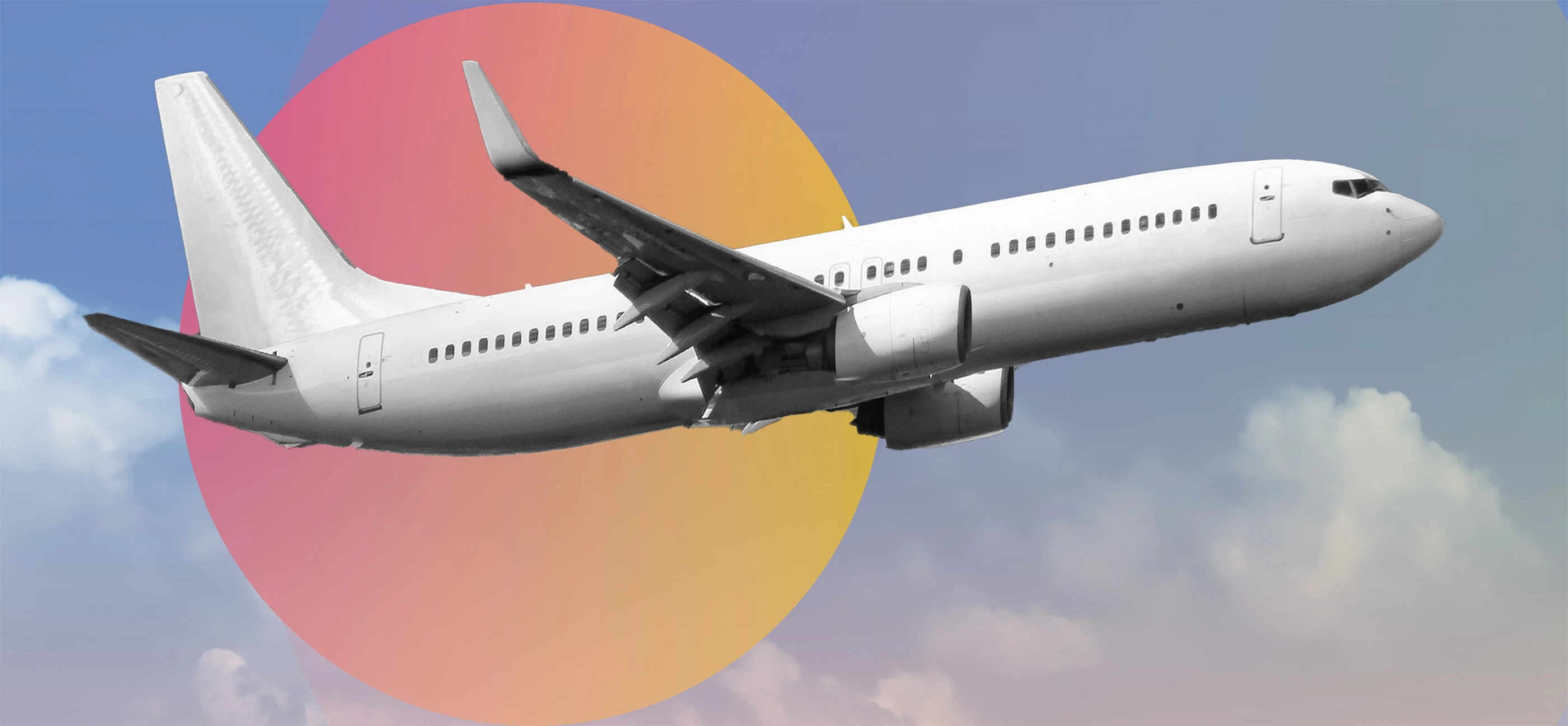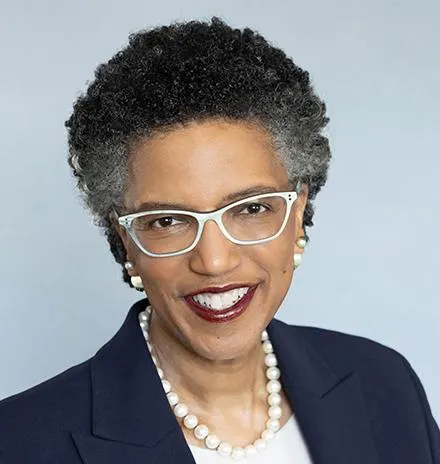
At the end of 2020—seven months after COVID-19 had sent the airline industry into a tailspin and five months after George Floyd’s murder by Minneapolis police provoked nationwide protests for racial justice—Delta Air Lines CEO Ed Bastian was moved to take more action to advance Black talent at the company.
In December 2020, Bastian announced that Delta would become a charter member of the newly formed OneTen corporate coalition, a group of business leaders from more than 30 large companies who aimed to collectively hire and advance 1 million Black employees without college degrees into “family-sustaining jobs” in 10 years.
“I [don’t] know what this will turn into,” but “we have got to start somewhere,” Bastian said during a meeting with two Delta executives he worked closely with on diversity, equity, and inclusion (DE&I)—Chief People Officer Joanne Smith and Chief DE&I Officer Keyra Lynn Johnson.
The frontline perspective can give management important insight into the employee experience and what customers really want from the airline.
Delta has reclassified most jobs that had previously required a degree and has begun to make hiring decisions based on skill qualifications, while expanding new apprenticeship and professional development programs. Now, three years later, Delta is making progress toward hiring and developing more Black talent, with and without college degrees, says Linda Hill, the Wallace Brett Donham Professor of Business Administration at Harvard Business School, who wrote a series of three case studies about the company’s focus on DE&I.
For Bastian, the strategy is about providing more equitable opportunity for all Delta employees, including Black employees, to move “from the ramp to the office.” He believed that bringing frontline workers into management would help everyone in the organization better understand “what it’s like to work on a ramp, in the cold, with a frustrated customer on a flight,” says Hill. “The frontline perspective can give management important insight into the employee experience and what customers really want from the airline.”
The strategy also made good business sense because after all, Bastian told his managers and executives, “If you take care of your people, they take care of your customers.”
In committing to the strategy for the long term, Hill says Delta may act as a model for other companies that are working to create a more diverse workforce. One lesson Bastian has learned through his efforts: To create a sustainable strategy, business leaders can’t view diversity hiring as a one-time push to bring people on board, but instead need to be committed for the long term as they implement systemic and equitable changes in how they hire and promote from within.
“It’s not simply about recruiting and getting people into the role. How are you going to give them sponsorship, give them mentorship?” says Hill, who coauthored the cases with HBS Research Associate Lydia Begag. “I don’t feel like Delta will decide two years from now, ‘That was an initiative and now we’re done.’ They understand that it will take substantial investment in time and resources.”
Atlanta is more than 50 percent Black
Delta started as a Louisiana crop-duster service that became a small, interstate passenger carrier in 1929. The company changed its name and moved to Atlanta in 1941, just in time to get lucrative World War II contracts that fueled its first expansion.
Hartsfield-Jackson Airport, where Delta is headquartered, has been the world’s busiest airport since 1998, and Delta was the Atlanta area’s largest employer for three decades. When Bastian took the helm as CEO of Delta Air Lines in 2016, he questioned why only 21 percent of the company’s 90,000 employees were Black, especially since the company was based in Atlanta, a city that was more than 50 percent Black and commonly known as the “birthplace of the Civil Rights Movement.” “And only 2 percent of the poorest residents ever managed to get out of poverty,” Hill recalled discussing in her conversations with Delta employees when researching and writing the cases.
At the time, the company was on solid financial ground. After staving off a US Airways takeover in the early 2000s, Delta was profitable and had been named by Fortune as the world’s most-admired airline twice. A champion in practicing “servant leadership” and “taking care of Delta’s people,” Bastian immediately began working to improve Delta’s talent architecture. Based on employee engagement data, Bastian could see that while talent retention was high at Delta, too many frontline employees felt stuck and unable to gain opportunities to advance professionally at Delta.
Despite their best efforts to evolve the talent architecture, Delta found it difficult to “add scale and create those [inclusive] pipes at the time.” So, in 2017, Bastian began a fresh strategy to advance underrepresented groups’ access to jobs at Delta. This included the launch of the Propel Collegiate Pilot Career Path Program, the first known pilot pathway program offered by a US global airline that would develop the next generation of pilots. He also began widening Delta’s ties with Atlanta’s historically Black colleges and universities (HBCUs). In 2019 Delta added a new Talent Connections network, and Bastian put $1 million from his own executive budget into the program.
In early 2020, Delta’s plans looked promising. It was the first airline to headline the Consumer Electronics Show in Las Vegas, with Bastian as the headline speaker. He was joined on stage by Nicole Jones, the African-American Director of Innovation at The Hangar, Delta's innovation lab. Talent Connections was taking off. Then COVID hit, and the airline industry went into lockdown, along with the rest of the country.
Delta offered early retirement and buyouts to its workforce, and in August 2020, 25 percent—more than 20,000 employees—took the deal. Four of the company’s seven Black executives were among them. Delta was burning through $100 million a day from lost flights, but Bastian was already looking ahead to what Delta’s future workforce should be.
“What this told me is that we had to grow our pipeline on all levels,” he said. “We had to grow it from the front line, and we had to continue to look for senior talent.” He made Delta’s employee demographics public, and he committed to hiring twice as many Black officers by 2025.
‘He made it his personal commitment’
In response to George Floyd’s murder and the ensuing nationwide protests, Bastian issued a public condemnation of the violence to Delta employees—which was considered a bold action by a high-profile CEO, Hill says. That summer he went on a “listening and learning tour,” holding in-house sessions with Delta’s Black workers and meetings with numerous national racial justice leaders, such as Equal Justice Initiative founder Bryan Stevenson and Dr. Bernice King, minister, lawyer, and the youngest child of Martin Luther King Jr.
It’s very special, how much of his own time and energy he put in, learning what was happening and taking both the moral and business stance that [Delta] should be able to have an impact.
When Bastian first learned about the OneTen coalition from fellow CEOs, he told them, “I am with you ... I don't know if I can pay anything now. But I will pay you with all the heart, soul, and grit of this company to put behind [the coalition] when you're ready.” OneTen was officially launched in December 2020, and as Bastian wrestled with his role and responsibility in hiring and advancing Black employees, he wasted no time in contacting many of its founding members, which include executives from Walmart, Target, Wells Fargo, Johnson & Johnson, and United Airlines. The number of companies involved has since doubled to more than 60.
“He made it his personal commitment,” Hill says. “It’s very special, how much of his own time and energy he put in, learning what was happening and taking both the moral and business stance that [Delta] should be able to have an impact.”
To that end, in 2020, Delta revisited one of its long-standing talent practices. In their Airport Customer Service (ACS) division, there were two employee groups: ready reserves (part-time customer service representatives who worked more flexible hours dependent on demand) and customer service agents (CSAs) who were either full-time or part-time employees receiving employment benefits. Bastian and his colleagues in ACS decided to sunset the ready reserve role, providing more equitable access to Delta benefits. “They understood the implications for members of the Delta family, who are very loyal and have worked with them for years, many of whom had been working two jobs to sustain their families,” she says. “They took OneTen’s model and adapted it to address the challenges and opportunities that Delta faced.”
What can other business leaders learn?
To fulfill their OneTen strategy, Delta also launched a skills-first apprenticeship program in March 2022, which has grown since. While many employees in the program saw it as a step forward, some employees at Delta were apprehensive of the focus on advancing Black talent that came from the OneTen strategy. Others with college degrees felt “left behind, and that there was nothing left for them,” as one talent manager pointed out.
“Not everyone has [accepted] skills-first hiring,” Hill says. “[But] Delta’s leadership understands how the business and moral imperatives are intertwined and addressed by skills-first hiring. I think everyone is still learning.”
Hill says other companies can learn a few key lessons in developing diverse talent from Delta’s efforts:
The CEO and corporate leadership have to be fully engaged. “The DE&I officer needs to have direct access to the C-suite. At Delta, Bastian really values the insight of his executive team, like Johnson. They do this work hand-in-glove,” Hill says.
The strategy must be pursued with transparency and rigor companywide. “The leadership needs to be exposed to people from different [workforce] groups,” Hill says, “because one of the things we know is that senior management is often in a bubble that limits their exposure to the experiences of all their employees. Building trust begins with transparency.” One way Delta did this was by introducing their “Close the Gap” strategy, which disaggregated Delta's demographic data and highlighted the company's progress-to-date on anti-racist efforts.
Recruiting Black talent from the outside isn’t enough. The company must do what it can to upskill people internally for career-sustaining positions and develop inclusive, welcoming cultures for all employees. “People who are stars at their jobs are more made than born. You’re going to have to develop them,” Hill says. “It all takes practice and time.”
You Might Also Like:
Curiosity, Not Coding: 6 Skills Leaders Need in the Digital Age
Why the Largest Minority Group Faces the Most Hate—and How to Push Back
Feedback or ideas to share? Email the Working Knowledge team at hbswk@hbs.edu.
Image: HBSWK and AdobeStock/Mateusz

